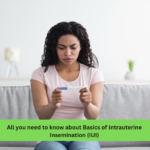Female Infertility and Diabetes
Almost one in every six couples is suffering from an inability to conceive or in other words, infertility. When the root cause of infertility is present in a female, it is known as female infertility. There could be a single reason or the combination of a number of factors causing infertility.
Cause of Infertility among women: Hormone imbalances, cysts or tumors, eating disorders, smoking, excessive consumption of drugs or alcohol, problems related to the thyroid gland, sudden intense exercises are just some of the factors that cause infertility among females. A woman is also unable to conceive if her fallopian tubes are damaged. Mental health is a major factor that affects fertility among women in general. If a woman is way too stressed, it has an adverse impact on ovulation. Infertility is also a side effect of some drugs and medications. For example, ovarian failure is caused by some chemicals that are used in chemotherapy.
Can Diabetes Cause Infertility: The glucose levels of a diabetic person are high that can have a negative impact on hormone levels in the entire body. It can also cause an imbalance in estrogen and progesterone levels that are required for a pregnancy to take place. This is the main reason why a controlling glucose level in your body is crucial to your fertility. But that doesn’t mean a diabetic woman can’t get pregnant. Diabetes is not exactly a cause of infertility. If it is under control and the woman is successful in maintaining a healthy body weight then there are great chances that a woman suffering from diabetes will be able to conceive.
Diagnosis of Female Infertility: A potential female infertility is diagnosed with the help of a physical exam of the patient that can include a blood test, pelvic examination, HSG, ultrasound, etc. This exam also includes a record of the patient’s medical history in regard to the potential factors that could result in infertility.
Treatment of Infertility for a Diabetic Person: Diabetics, in general, don’t cause infertility but high sugar level does. Here are some steps that you can follow to control your sugar levels.
- It is important that you manage your diet. If possible, consult a dietician and follow a healthy diet chart.
- Refrain from alcohol consumption as it can cause your sugar levels to rise and fall rapidly.
- Follow an exercise program if you are overweight.
- Take a folic acid supplement.






No Comments